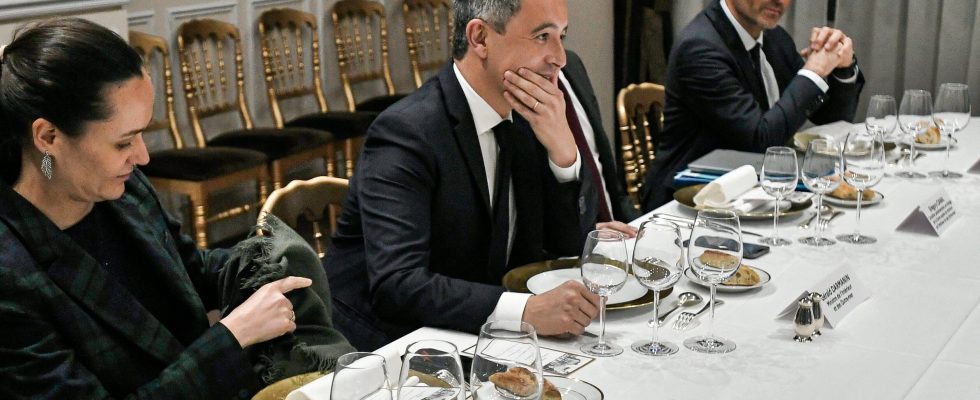This is a big step forward. Gérald Darmanin estimated that the State and elected officials of Corsica were moving “towards a consensus” on a constitutional reform project allowing autonomy for the island, at the end of a long meeting Monday evening in Paris welcomed by the participants .
During a dinner which lasted nearly 4.5 hours at Place Beauvau, the Minister of the Interior made a “proposal for constitutional writing” comprising “five major advances”, he told the press on the night of Monday to Tuesday. “I think we are moving towards a consensus,” he said, hoping that this would “then allow the territorial assembly, the President of the Republic and tomorrow, perhaps, the Parliament to reform the Constitution for Corsica.
“A singular place in the Constitution”
The first subject mentioned by the minister is the recognition “that the community of Corsica has a unique place in the Constitution”, with its “linguistic, cultural and island specificities” and “its attachment to the land”. Second point: the government wants Corsica to have “general authorization” to adapt legislative and regulatory texts to its situation.
Thirdly, Corsica would be endowed with legislative and regulatory competence, that is to say normative autonomy, in areas that an organic law would establish. With “two safeguards”, warned Gérald Darmanin: each text must be submitted to the Council of State for opinion and for control by the Constitutional Council. Fourth point: the Corsicans will be consulted on this new status, and will have to give their agreement.
Finally, it will be necessary to decide whether the reform is included in a title of the Constitution, as the nationalists wish, or a simple article, an option which is preferred by President Emmanuel Macron.
“A constructive state of mind”
At the end of the dinner, the autonomist president of the executive council of Corsica, Gilles Simeoni, welcomed “a constructive state of mind, a desire to seek consensus and a certain number of very significant achievements”. “Tonight, there are serious reasons to be optimistic, even if we must continue to be cautious,” he summarized. “It is established, in the current state of the text, that Corsica will be endowed with a status of autonomy within the Republic,” he rejoiced.
Member of Parliament for Corsica-du-Sud and president of the Horizons group in the National Assembly, Laurent Marcangeli estimated that this vast institutional project had “made yet another step forward”. “We have not yet reached the finish line but in any case we are close, from my point of view,” he noted.
During a visit to Corsica on September 28, Emmanuel Macron gave six months – until the end of March – to island political groups, from separatists to the right, to reach an “agreement” with the government on a ” constitutional and organic text” which would give Corsica “autonomy in the Republic”.
Asked about the introduction of a “resident status”, Gérald Darmanin underlined the absence of “consensus” around this concept, preferring to “imagine a status of residence which could make it possible to fight against real estate speculation in Corsica. In addition, he reaffirmed that the government did not wish to move “towards co-officiality” of Corsica, while saying it was in favor of “greater promotion” of this language.
Gérald Darmanin arranged to meet “in 15 days” with the delegation of eight Corsican elected officials, “in the same format”. “Then I will chair, if things are conclusive, a so-called strategic committee within 48 hours,” he indicated. This will be the end of the “Beauvau process” started two years ago.
After consulting the Corsican Assembly, “the President of the Republic will initiate constitutional reform, whenever he wishes”, continued the minister, recalling that the text must be voted on by both chambers of Parliament in the same terms, then adopted by Congress by a three-fifths majority.
